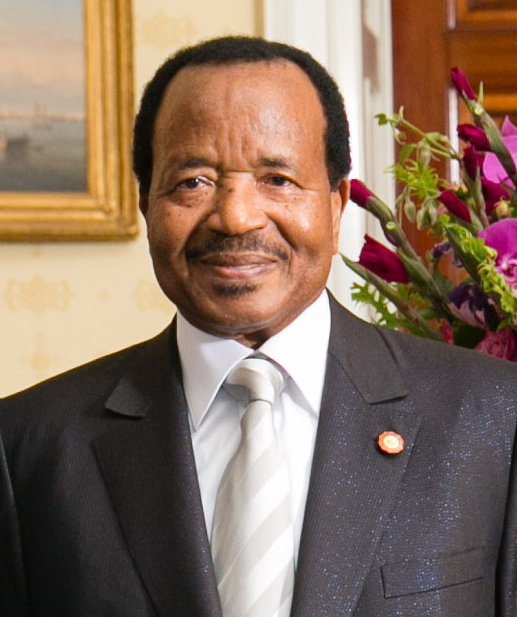Anglophone Crisis Sparks National Dialogue in Cameroon
Cameroonian President Paul Biya who announced the national dialogue in early September. (Wikimedia Commons)
Long-standing tensions between two English-speaking regions and the predominantly Francophone Cameroon have pressured President Paul Biya to host a week-long dialogue on Anglophone grievances, which began on September 30.
As a result of the nation’s colonial history, Cameroon is split between former French colonial holdings and a small region of former British colonial holdings. For most of Cameroon’s history as an independent nation, this has caused a level of conflict. For example, in the 1980s, Biya ended the federal status of the country, transforming it into a centralized unitary state. A prominent lawyer, Fon Gorji Dinka, then became one of the first major public figure to advocate for an independent Anglophone state. He was subsequently jailed for a year without trial.
Due to grievances surrounding resource allocation, regional autonomy, and degradation of certain Anglophone institutions, such as the education and legal systems, a considerable number of Anglophone Cameroonians desire independence and want to create a new country called Ambazonia.
The intensification of violence in the last few years is largely due to Biya’s strategy of heavy-handed military intervention against the separatists and civilians. In fact, approximately a third of citizens from the predominantly Anglophone regions currently require humanitarian assistance.
The national dialogue announced by Biya has received mixed reviews. On the one hand, people like Elvis Ngolle Ngolle, a government official, says that “it will enhance participatory development across the country.” However, Biya’s rhetoric has caused frustration within Anglophone communities. For example, in a speech he gave on September 10, he described the dispute as a result of disgruntled lawyers and teachers. While widespread protests in 2017 were the initial stage of this conflict, a harsh military crackdown and decreasing autonomy of the region, in general, have exacerbated the issue, experts say.
Because many Anglophone citizens feel the national government is dismissive of their concerns, many prominent members of Cameroonian opposition -- Anglophone and Francophone -- have decided to boycott the national dialogue. Cameroonian politician and former presidential candidate Akere Muna described the event saying, “This dialogue is as likely to succeed as giving the malaria drug to someone suffering from another disease.”
In 2016, when protests started to form, discussions of federalism as a possible solution was considered taboo by the government. However, now that the government is ready to discuss the possibility, it is no longer enough to please ardent Anglophone separatists. The national dialogue has garnered support among some Anglophones. Yannick Kawa Kawa, an ex-separatist fighter taking part in the summit, believes that the national dialogue has potential to stop the violence.
Political disagreements aside, the instability and violence in Cameroon have had disastrous effects on the region, particularly for education. As a result of continued conflict and separatist-led school boycotts, approximately 98 percent of schools in Anglophone regions are closed. A report published by the Global Centre for the Responsibility to Protect indicated that 4.3 million Cameroonians need emergency assistance. As a part of the violence, villages have been burned to the ground and both the government and the separatists have committed countless atrocities.
Adequately addressing Anglophone grievances will be a challenge, but participants hope that the national dialogue represents a start to the process of rebuilding trust between the Anglophone community and the government.

